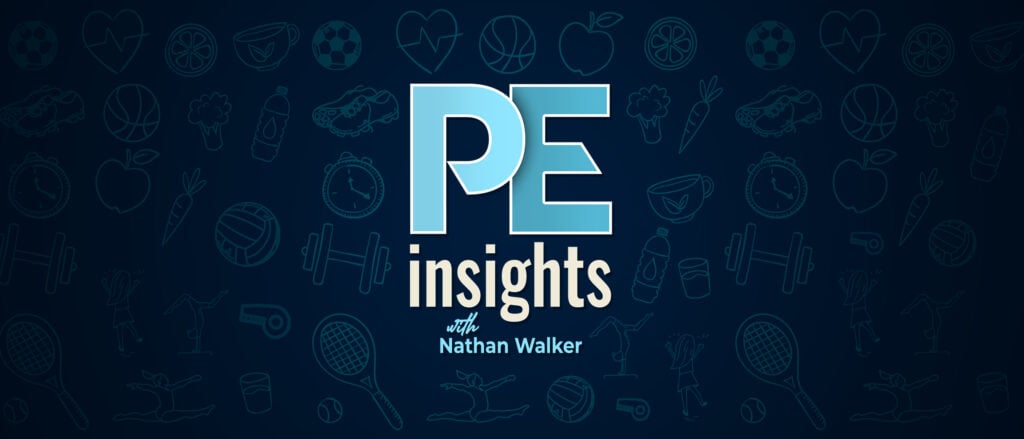
Introduction
Step into this week’s podcast, where we explore the realm of physical education and its pivotal role in shaping the health and wellbeing of the next generation. Sport has the power to transform lives, shaping both individuals and communities in profound ways. This week’s guest, Greg Dyer, co-founder of the incredible MiMove app, talks to Nathan Walker about his personal journey from secondary school athlete to educator. He highlights the transformative impact of sport. Through his experiences, Greg has come to understand the potential of sport to empower and inspire, driving positive change in education and beyond.
Unlocking the Power of Sport in Education
Reflecting on his journey through secondary school and university, Greg shares how sport has been a central and transformative aspect of his life. From representing his school in various sports to earning a scholarship to play football in America, his dedication to sport shaped his path.
Transitioning to Education and Impacting Communities
After pursuing a degree in education, Greg felt a calling to make a difference in inner-city London. His teaching career spanned 16 years in East London and Tottenham, where he aimed to empower children in underserved communities through physical activity. Following a health setback, Greg transitioned to teacher education, driven by a passion to equip educators with the tools to inspire active lifestyles in children. He initiated innovative programmes like the Centre for Sporting Activity at Kingston University, bridging academia with practical application.

Bringing Pedagogy to Life
Greg’s approach to teacher education prioritises experiential learning, with “live labs” where trainees observe him teaching children in real-time. By demonstrating effective teaching strategies in action, he fosters a deeper understanding of pedagogical concepts. Sitting at the nexus of academia and practice, Greg recognises the importance of grounding theoretical knowledge in real-world application. His commitment to both realms enables him to develop impactful programmes like MiMove, an app designed to empower children to reflect on their physical activity journey. Collaborating with educators and practitioners, Greg’s initiatives aim to foster autonomy and self-determination in children’s physical activity choices. By bridging the gap between research and practice, he strives to create meaningful, sustainable change in education and physical activity.
MiMove: Empowering Future Generations
As Greg continues to innovate in the field of physical education, his focus remains on empowering children to lead active, fulfilling lives. Through ongoing collaboration and dedication to evidence-based practice, he seeks to shape a future where every child has the opportunity to thrive through physical activity. His MiMove app aims to support every child’s positive relationship with physical activity. Its design reflects a commitment to inclusivity and the promotion of physical literacy, emphasising the significance of individual experiences in sustaining long-term engagement. The app comprises two components: a student app and a teacher app. Students record their physical activities, reflecting on quantity, context, and emotional responses. This data empowers teachers to gain insights into students’ experiences, fostering personalised interactions and meaningful engagement. Platforms like MiMove offer a unique opportunity to track and support physical activity journeys from childhood through adolescence. By seamlessly transitioning accounts from primary to secondary school, educators gain invaluable insights into students’ physical engagement over time.

Nurturing Active Identities: Fostering Lifelong Physical Literacy
Encouraging young people to embrace an active lifestyle goes beyond mere participation; it’s about fostering a sense of identity and belonging. Without this foundation, competency remains a challenge. Self-determination theory emphasises the importance of feeling secure and validated in one’s physical endeavours. Physical literacy, akin to literacy in other domains, forms the cornerstone of a lifelong relationship with movement. It encompasses not just physical skills but also psychosocial aspects, ensuring that every child feels welcomed and validated.
Challenges and Solutions
While the benefits of physical activity are widely acknowledged, navigating complex agendas and competing priorities can be daunting for physical educators. Simplifying objectives, focusing on evidence-based outcomes, and prioritising student experiences can help cut through the noise. Nurturing active identities isn’t just about getting kids to move; it’s about instilling a lifelong love for physical activity. By emphasising inclusivity, leveraging technology, and staying true to the essence of physical literacy, educators can empower students to lead healthier, more fulfilling lives.
Conclusion
In the quest to unlock the power of sport in education, Greg’s journey serves as a guiding light. By bridging theory with practice, prioritising experiential learning, and leveraging innovative tools like the MiMove app, Greg demonstrates a commitment to fostering lifelong physical literacy and empowering future generations. Despite the challenges that lie ahead, Greg’s dedication to evidence-based practice and student-centred approaches offers hope for a future where every child has the opportunity to thrive through physical activity.
About the Guest
Greg Dryer is a physical education expert with a wealth of experience in leadership and PE teacher education. He is also co-founder of the MiMove app
You can connect with Greg directly via X at @Greg_Dryer
Listen and Connect
To listen to the full episode please follow these links to Spotify or Apple Podcasts.
If you would like to be a guest on the PE Insights Podcast please reach out by contacting us here or reach out to Nathan Walker via X at @NWalkerPE


Responses